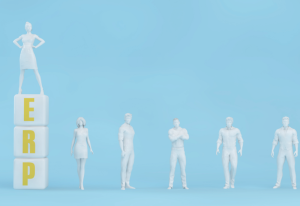
Enterprise Resource Planning (ERP) systems are essential tools for businesses looking to manage and integrate their core business processes. With a multitude of ERP systems available on the market, it can be challenging for businesses to select the right system that meets their needs. Here are some key factors to consider when comparing ERP systems:
- Features: ERP systems vary in their features and capabilities, so it’s essential to understand what features are most important to your business. Some key features to consider include finance and accounting, supply chain management, customer relationship management, and human resources.
- Cost: ERP systems can vary significantly in cost, from entry-level solutions to more expensive, feature-rich systems. It’s essential to consider not just the upfront cost of the system but also ongoing costs such as maintenance, upgrades, and support.
- Scalability: Consider whether the ERP system can grow and scale with your business. Can the system accommodate additional users and locations, and will it be able to handle increased data volumes?
- Ease of Use: ERP systems should be user-friendly and easy to navigate. Consider whether the system has an intuitive interface, and whether employees will require extensive training to use it effectively.
- Integration: Consider whether the ERP system can integrate with other software and systems already in use by your business, such as CRM or accounting software. Integration can improve efficiency and reduce duplication of effort.
- Support and Maintenance: Consider the level of support and maintenance provided by the ERP vendor. Is there a support team available to answer questions and provide assistance, and what is the response time for support requests?
- Implementation: Consider the implementation process for the ERP system. Will the vendor provide support and guidance throughout the implementation process, and what is the estimated timeline for implementation?
Comparing ERP systems can be a complex process, but by considering these key factors, businesses can select the right system that meets their needs and budget. By selecting an ERP system that is feature-rich, scalable, user-friendly, integrates with existing software and systems, and provides adequate support and maintenance, businesses can improve their efficiency, reduce costs, and streamline their operations.




